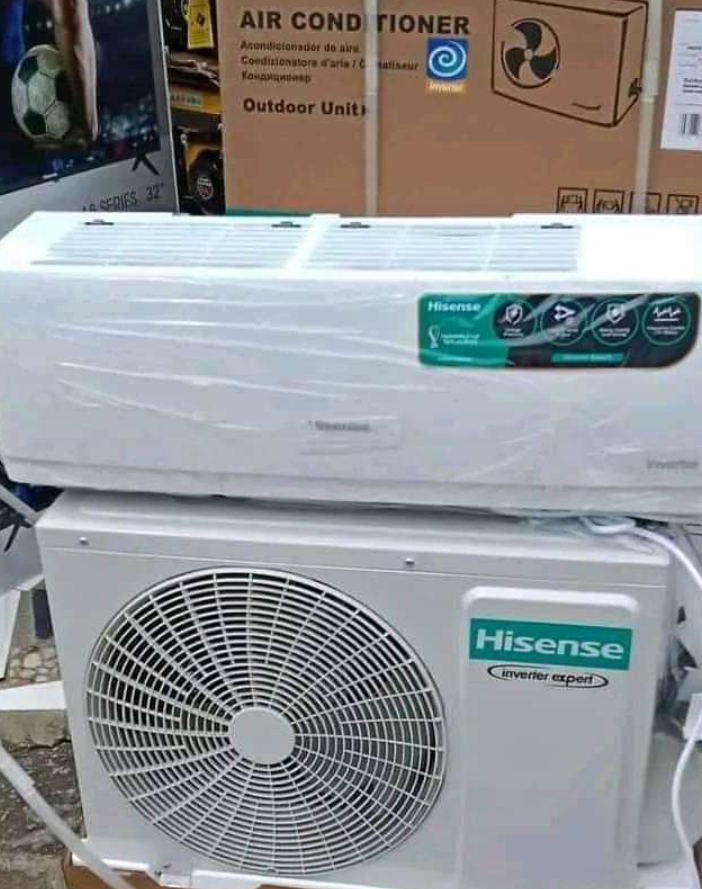
When it comes to choosing an air conditioning system, there are many factors to consider. One of the most important decisions is whether to go with a non-inverter or an inverter air conditioning unit. These two technologies have significant differences in terms of energy efficiency, performance, and cost. In this blog post, we’ll explain the key distinctions between non-inverter and inverter air conditioning systems to help you make an informed decision.
Before diving into the differences between non-inverter and inverter ACs, it’s essential to understand the basic workings of air conditioning systems.
Non-Inverter Air Conditioning:
Non-inverter air conditioners have a fixed-speed compressor. This means that once they are turned on, they operate at a constant speed to maintain the desired temperature. When the temperature reaches the set point, the compressor turns off, and when it rises above, it turns on again. This on/off cycle continues throughout the operation.
Inverter Air Conditioning:
Inverter air conditioners, on the other hand, have variable-speed compressors. These compressors can adjust their speed according to the cooling needs. They work by continuously regulating the temperature without turning off and on, which results in more consistent and efficient cooling.
Now, let’s explore the key differences and advantages of each type of air conditioning system.
Energy Efficiency
In terms of energy efficiency, inverter air conditioners have a significant edge over non-inverter ones. The ability to modulate compressor speed allows inverter ACs to consume less power when cooling is not as demanding. Non-inverter air conditioners, on the other hand, consume more power due to their on/off cycle.
Cooling Performance
Inverter air conditioners offer superior cooling performance. They can maintain a more stable and comfortable indoor temperature because they don’t experience temperature fluctuations associated with non-inverter models. Inverter ACs can also cool a room faster because they can ramp up the compressor speed when needed.
Non-inverter air conditioners, with their on/off operation, may experience temperature swings, making it harder to maintain a consistent and comfortable environment. They might take longer to cool a room, especially during extremely hot weather.
Noise Levels
If you value a quiet environment, inverter air conditioners are generally quieter. Their variable-speed compressors operate at lower speeds when the cooling demand is lower, resulting in less noise. Non-inverter ACs can be noisier due to their frequent on/off cycling.
Lifespan and Durability
Inverter air conditioners tend to have a longer lifespan and are more durable than non-inverter models. The continuous operation and reduced stress on components make them less prone to wear and tear. Non-inverter air conditioners may experience more wear and tear due to their frequent start/stop cycles, potentially leading to a shorter lifespan.
Initial Cost and Payback Period
Non-inverter air conditioners are generally more affordable upfront, making them an attractive option for budget-conscious consumers. However, it’s essential to consider the long-term costs. Inverter air conditioners may have a higher initial price, but their energy efficiency can lead to significant savings over time. The payback period, when you recoup the price difference through energy savings, can be relatively short in many cases.
Environmental Impact
Inverter air conditioners are more environmentally friendly due to their reduced energy consumption. They have a smaller carbon footprint, making them a better choice for those concerned about their impact on the environment.
Adaptability to Temperature Changes
In areas with varying climate conditions, inverter air conditioners can adapt more effectively. They can adjust their cooling capacity based on the outdoor temperature, ensuring optimal performance even during extreme weather. Non-inverter ACs may struggle to maintain consistent cooling in such conditions.
Maintenance and Repairs
Inverter air conditioners often require less maintenance because of their reduced wear and tear. Non-inverter models might need more frequent maintenance and repairs due to their start/stop cycles.
In the battle of non-inverter vs. inverter air conditioning systems, the latter comes out on top in terms of energy efficiency, cooling performance, and overall convenience. However, non-inverter ACs have their place, especially for those on a tight budget. It’s important to consider your specific needs and budget when making a choice.
In most cases, the higher upfront cost of inverter air conditioners is justified by their long-term energy savings, quieter operation, and better cooling performance. Additionally, their lower environmental impact is a compelling reason to opt for inverter technology.
In conclusion, when choosing between non-inverter and inverter air conditioning, consider your budget, cooling needs, and long-term savings. Inverter air conditioners offer the best overall value and comfort, making them a wise choice for most homeowners.

Leave a Reply